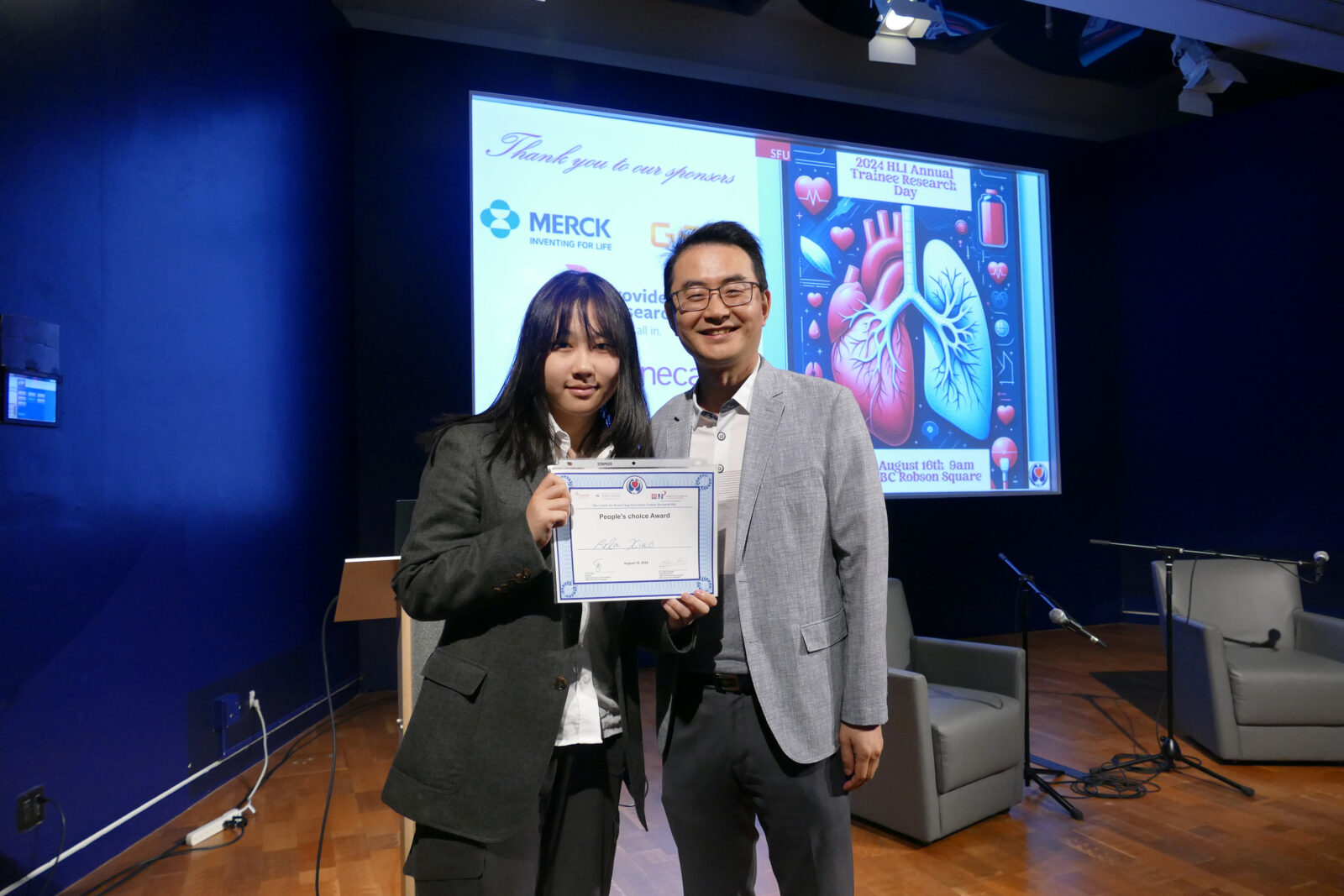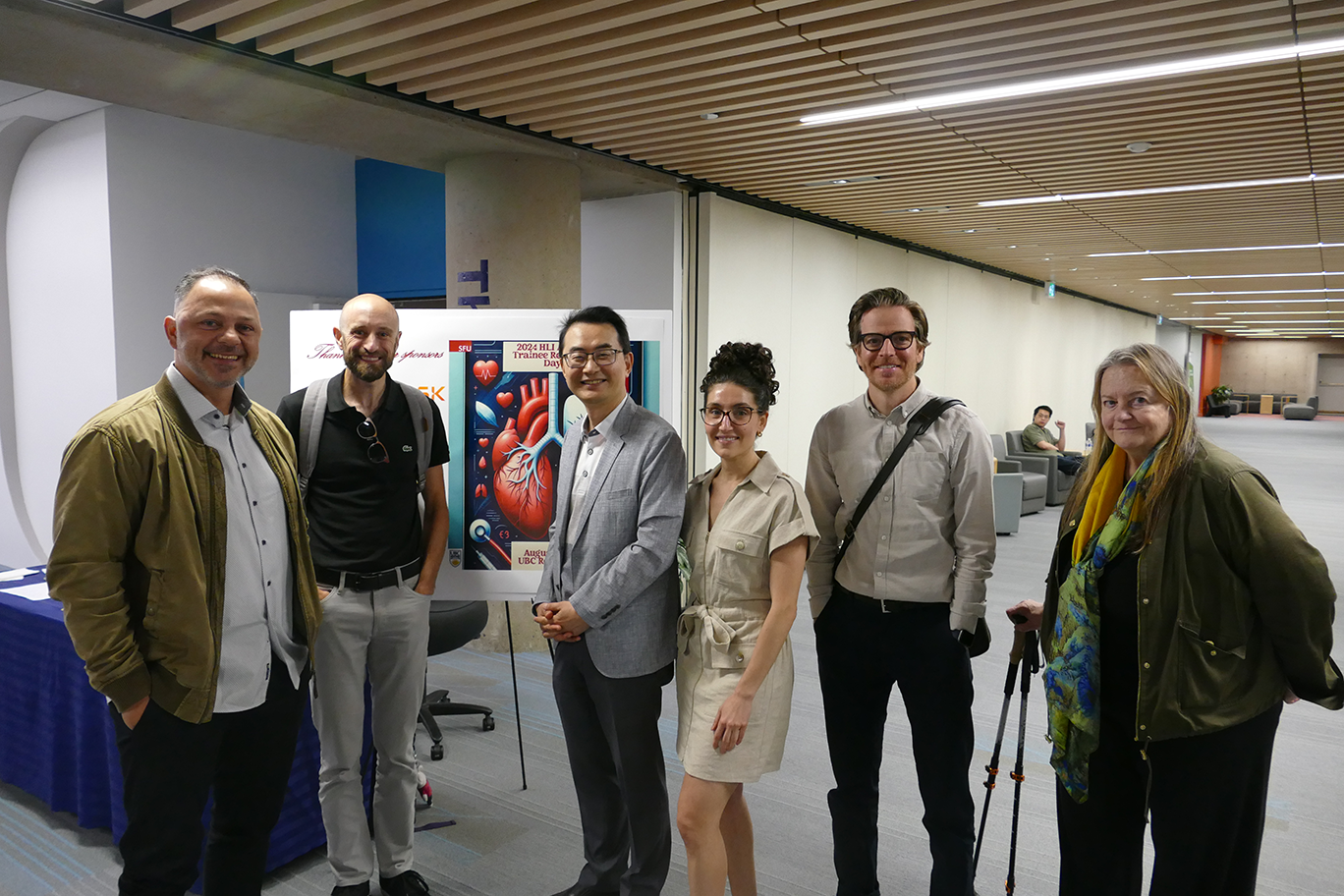
Every summer, HLI hosts its annual Trainee Research Day, where students present the latest findings of their research in a variety of formats, including talks, posters, and this year’s newest category: The Knowledge Translation Video Competition. The HLI Trainee Association is always engineering creative ways to share our research, and last year, it was the Rapid Fire Presentations that caught everyone’s attention.
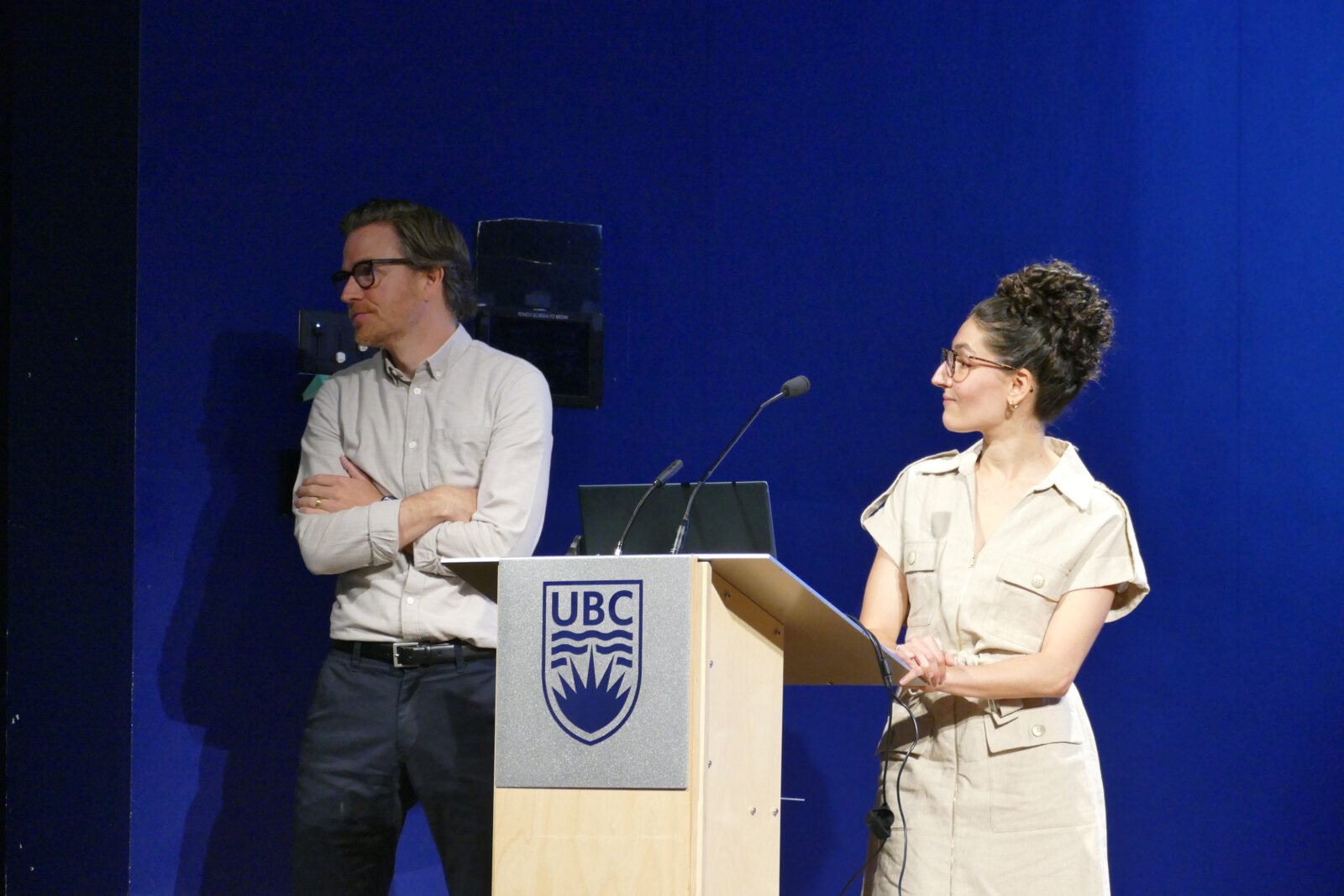
Drs. Graeme Koelwyn and Rachel Eddy first took the stage and spoke about their experiences as young principal investigators (PIs), balancing life between academics, research, and where the lines blur.
“When you’re new, there’s a lot you can’t prepare for, and you’ll need to be in uncomfortable positions,” Dr. Koelwyn said, recalling his own experience of feeling like he had to ‘fake it till he made it’.
“But you just need to trust yourself to be able—spread your wings, and create your own trajectory.”
Dr. Eddy echoed his sentiment, noting that even for her, impostor syndrome never goes away.
“Talk to your peers; there are many people in the same boat as you,” she advised. “Don’t isolate yourself, because we’re all in this together.”
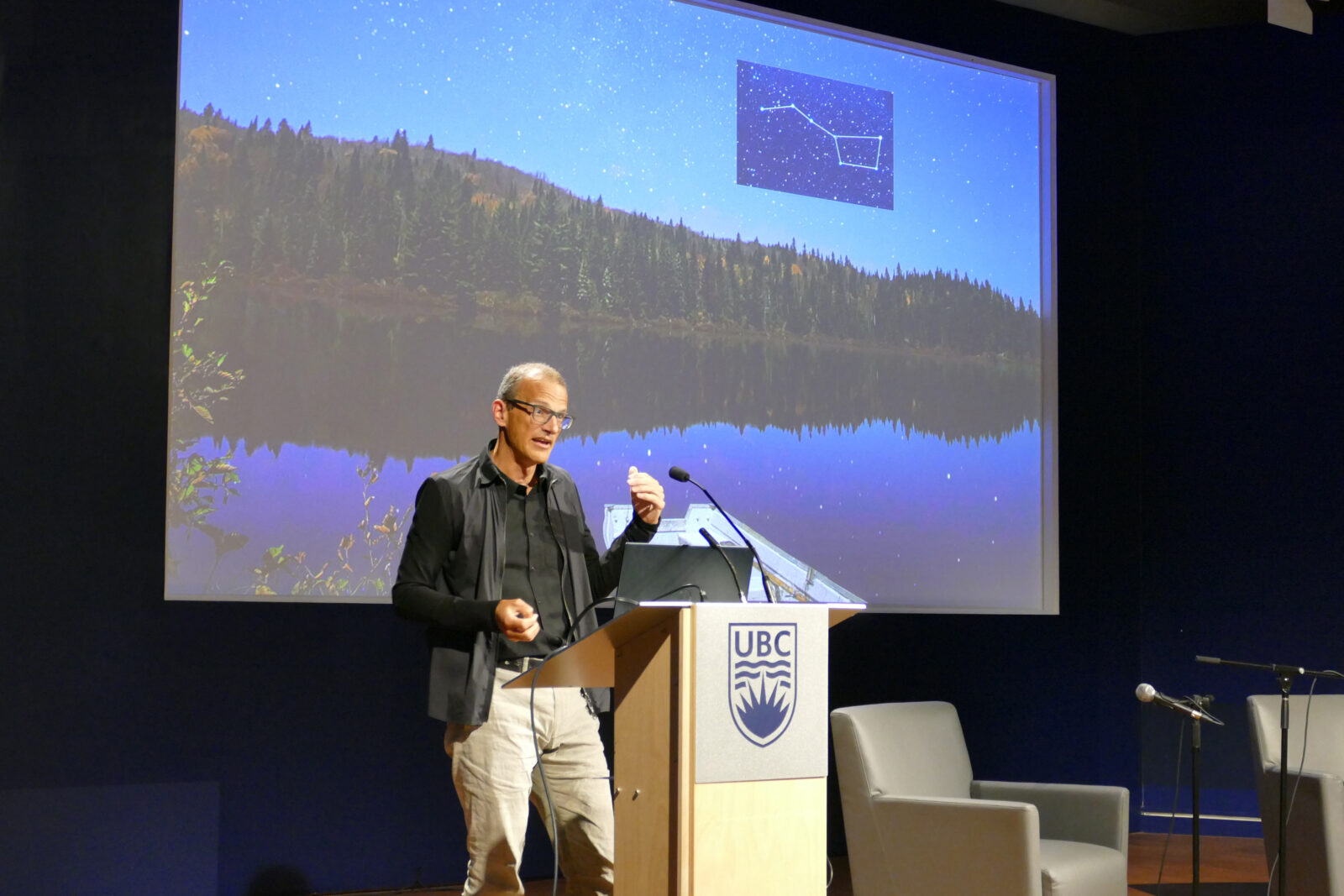
Dr. Simon Rousseau, Associate Professor in the Department of Medicine at McGill University and keynote speaker for the Peter Paré Lecture, noted an excitement in the air as HLI trainees shared their research.
“Trainees are the foundation of academic research and I am continuously amazed and delighted to see the breath of work carried out,” he said. “The knowledge translation segment was quite astonishing; plenty of talent in spreading the outcomes of research to lay audiences.”
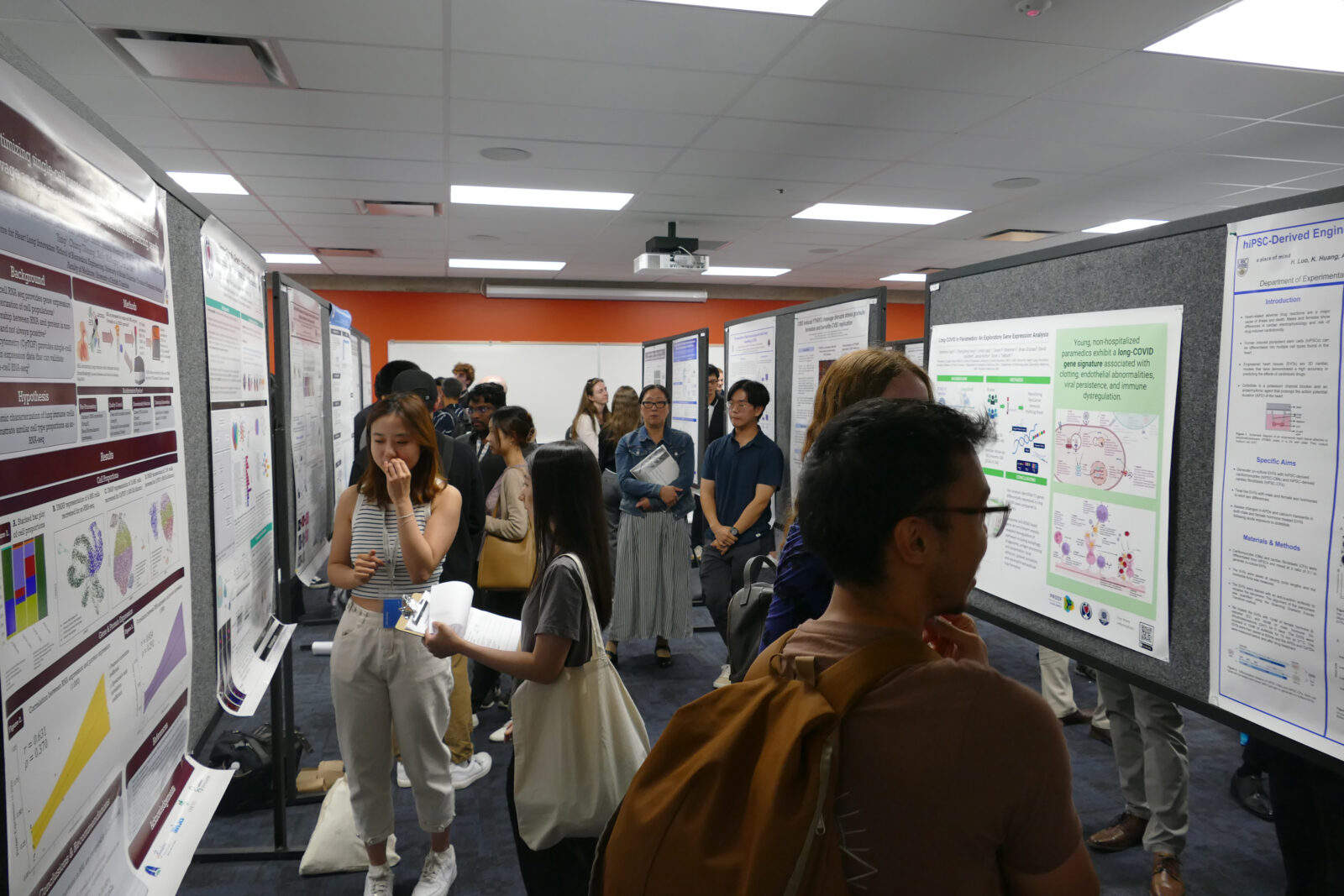
Before long, it was time for the first round of poster presentations. The poster room, lined with rows of poster boards and eager presenters, was reminiscent of a bazaar, with trainees beckoning visitors and judges alike to view their research. The enthusiasm was off the charts, and an extension for the session was required, with there being an overflow of guests in line.
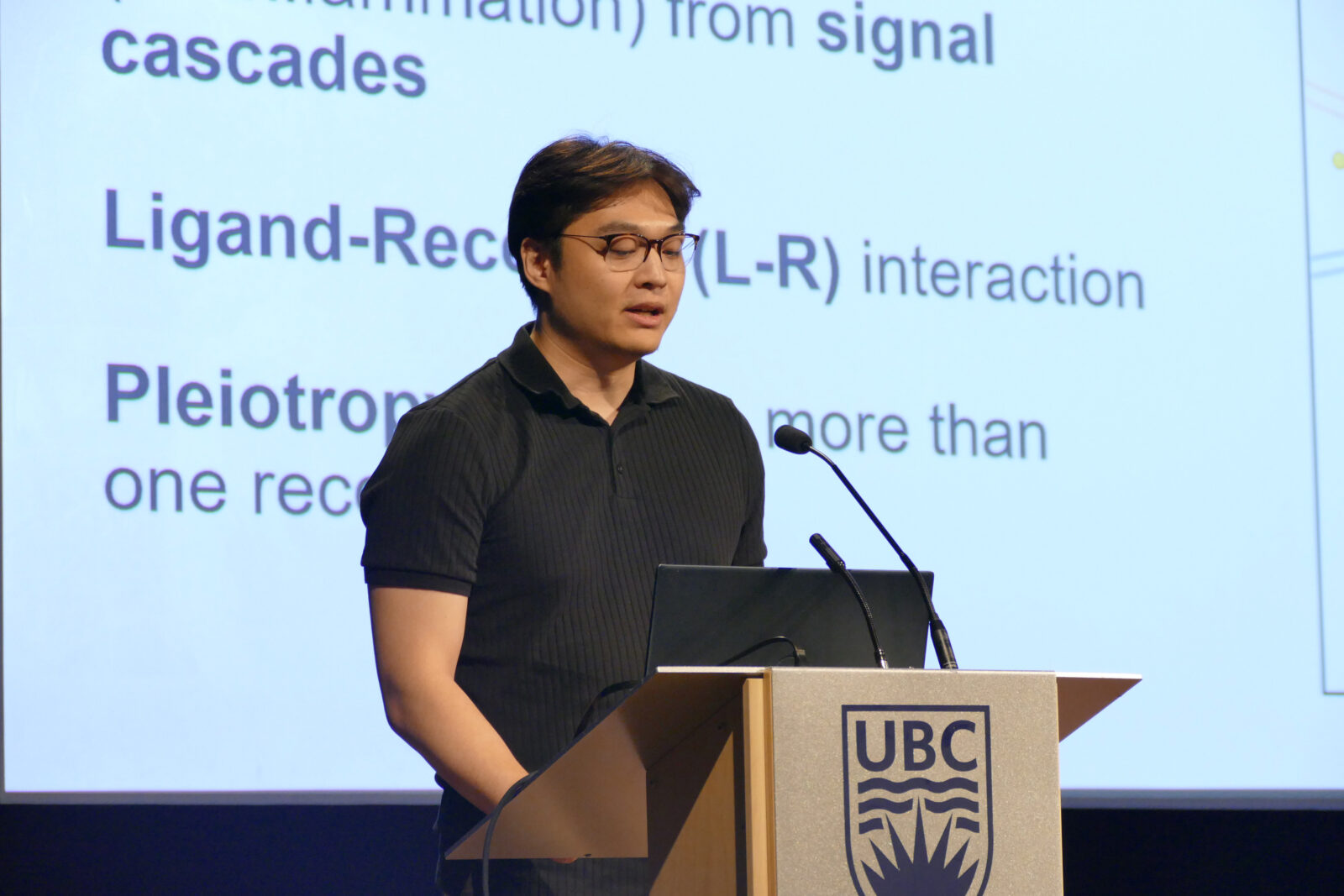
As everyone hurried back into the lecture hall, the oral presentations began. A total of 12 presentations were given by our trainees, focused on topics concerning the heart, lungs, and critical care.
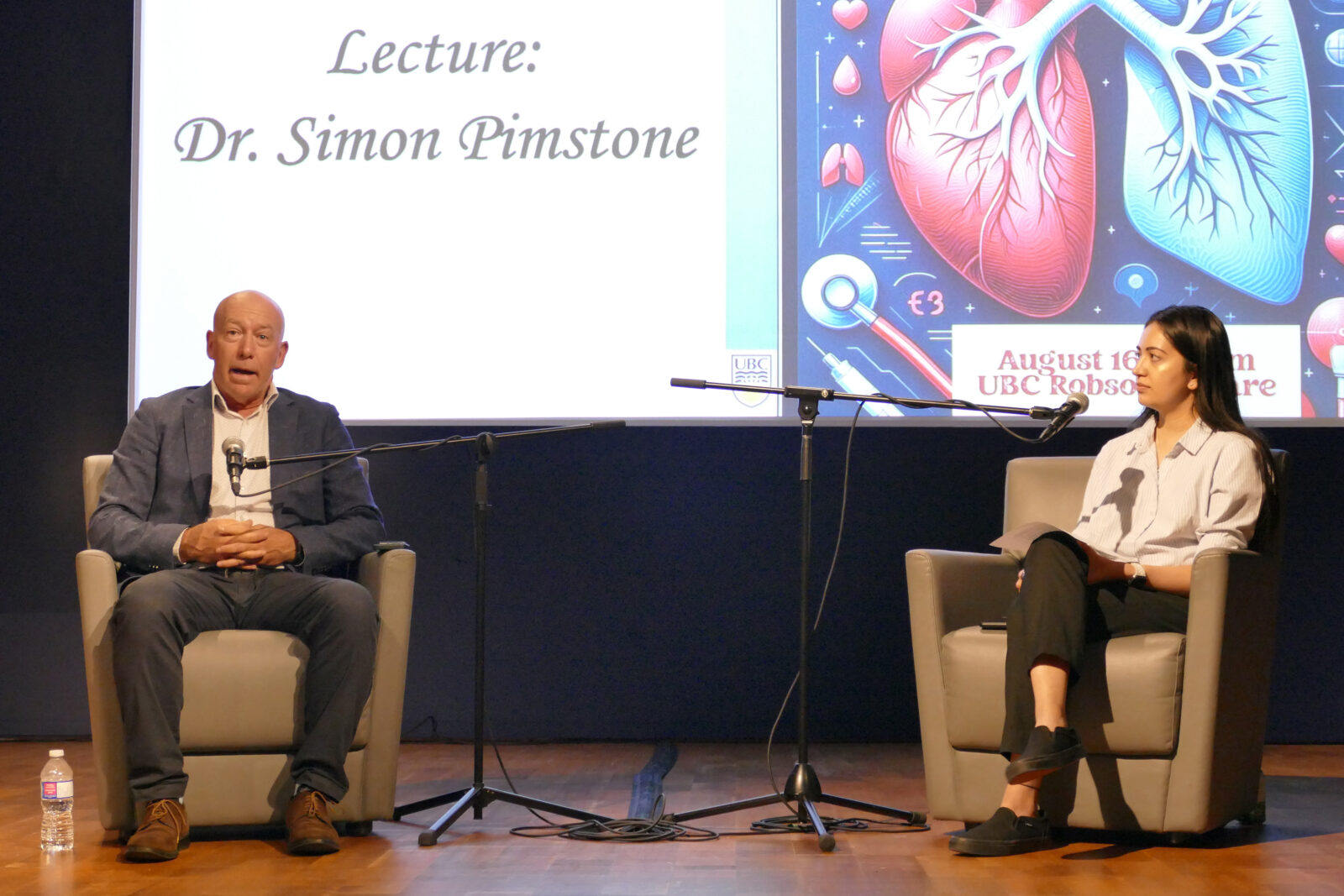
After lunch, graduate student Sunaina Chopra held a fireside chat with Bruce McManus Lecturer Dr. Simon Pimstone, who is Clinical Assistant Professor in the Division of General Internal Medicine and Associate Member in the Division of Cardiology at UBC. In addition to his clinical work, Dr. Pimstone was a founder, Director, and Chief Executive Officer of Xenon Pharmaceuticals Inc.
Well-versed in the different sectors and paths available to trainees after graduation, Dr. Pimstone stressed that he finds it crucial for young people to avoid changing directions too often. “Just focus on one path,” he said. “Once you find success from it, it becomes a lot easier to switch after.”
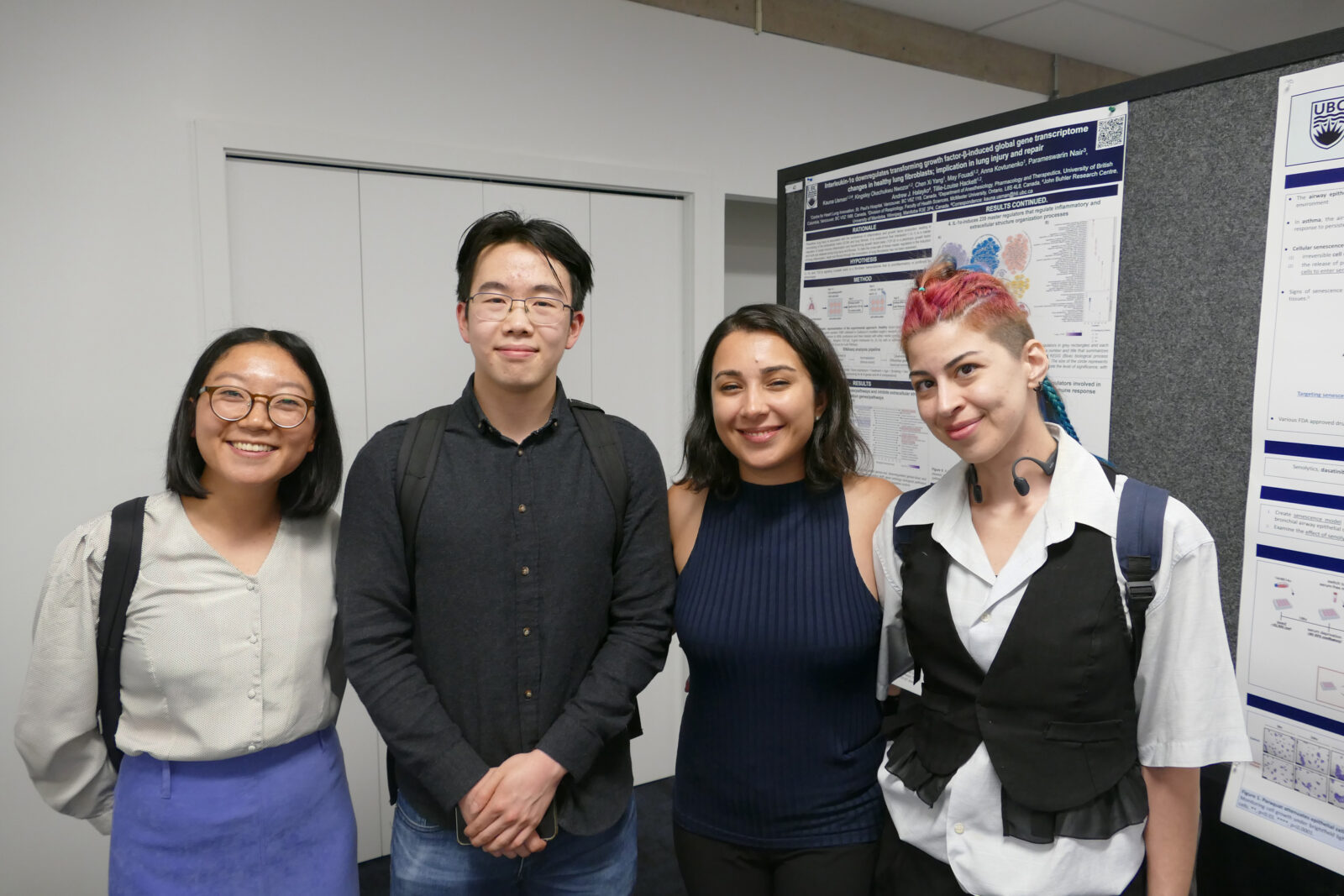
The second poster session was just as packed as the first, and at the end of the day, 34 posters in total were presented and reviewed. The audience also voted on the submissions to the latest addition to Research Day festivities: The Knowledge Translation Video Competition. The competition challenged trainees to create two-minute videos to explain their research to a lay audience, and 5 videos were produced in total, which you can watch on our YouTube channel.
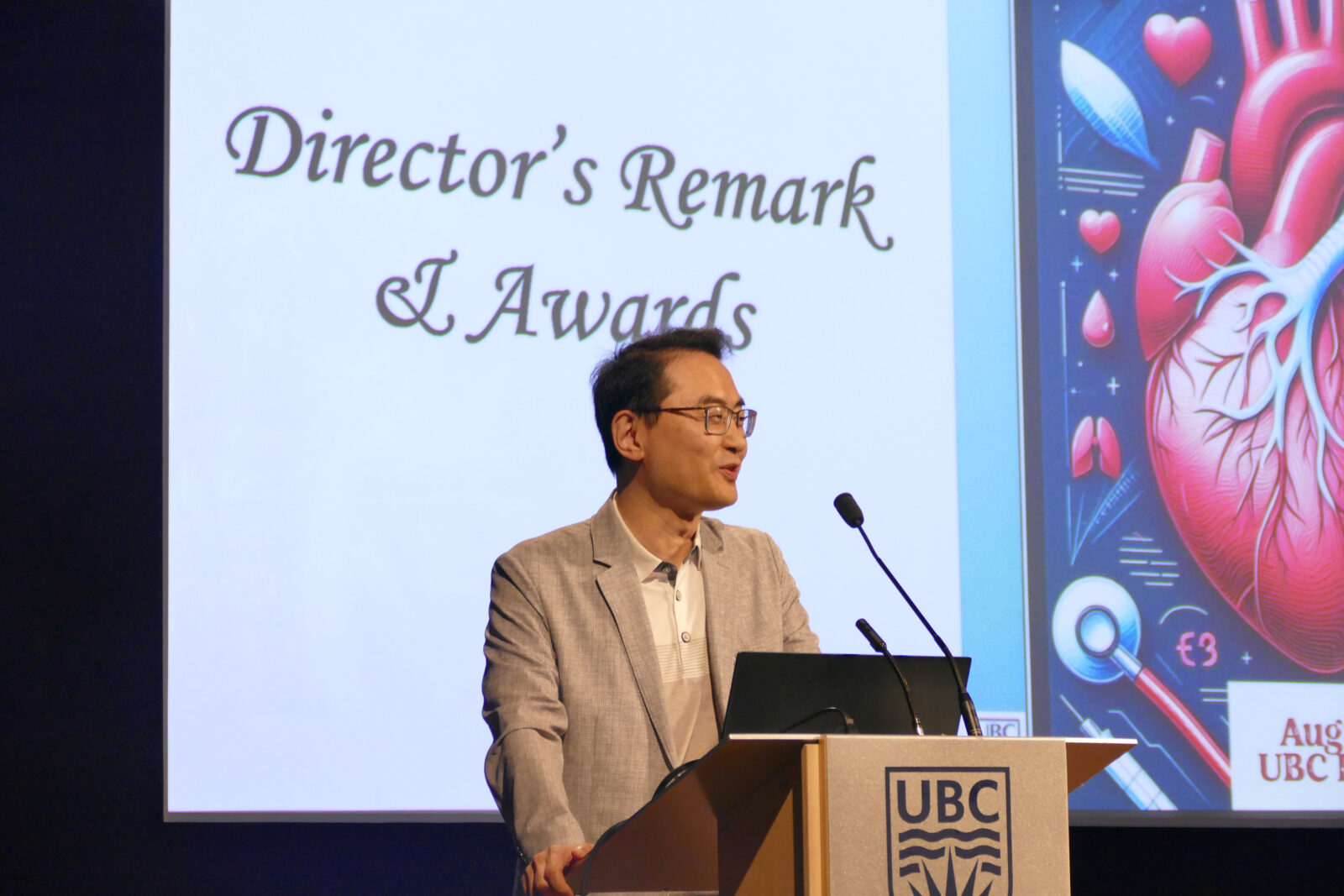
HLI Director Dr. Don Sin then concluded Research Day with a presentation of his own on the landscape of scientific publications, but it was the students’ research that impressed him the most.
“I was blown away by the quality of their presentation and their studies; the poise and maturity of the presentation and students’ ability to think on their feet and field questions. The keynote speeches were also terrific and practical, demonstrating the diverse career trajectories of biomedical scientists. This was the best ever HLI Research Day and I can’t wait for next year’s.”
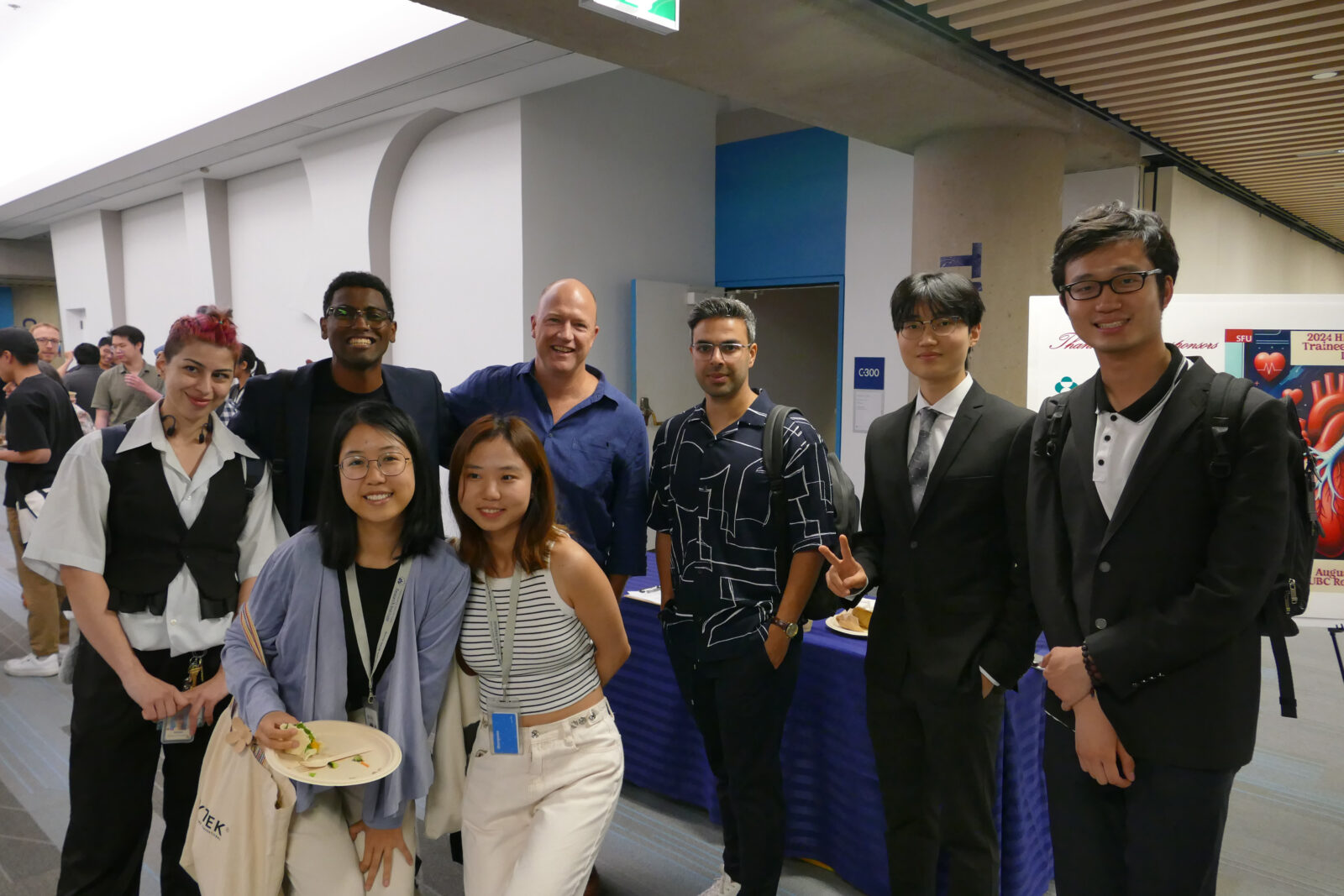
Back row (left to right): Basak Sahin, Dr. Yasir Mohamud, Dr. David Granville, Dr. Amirhossein Bahreyni, Kevin Seo, Eric Xiang
Of course, no Research Day is complete without the award ceremony. Here is our full list of winners:
Poster Presentations:
First Place: Rachael Smith – Proteins Co-segregating with Pathological TDP-43 Proteoforms
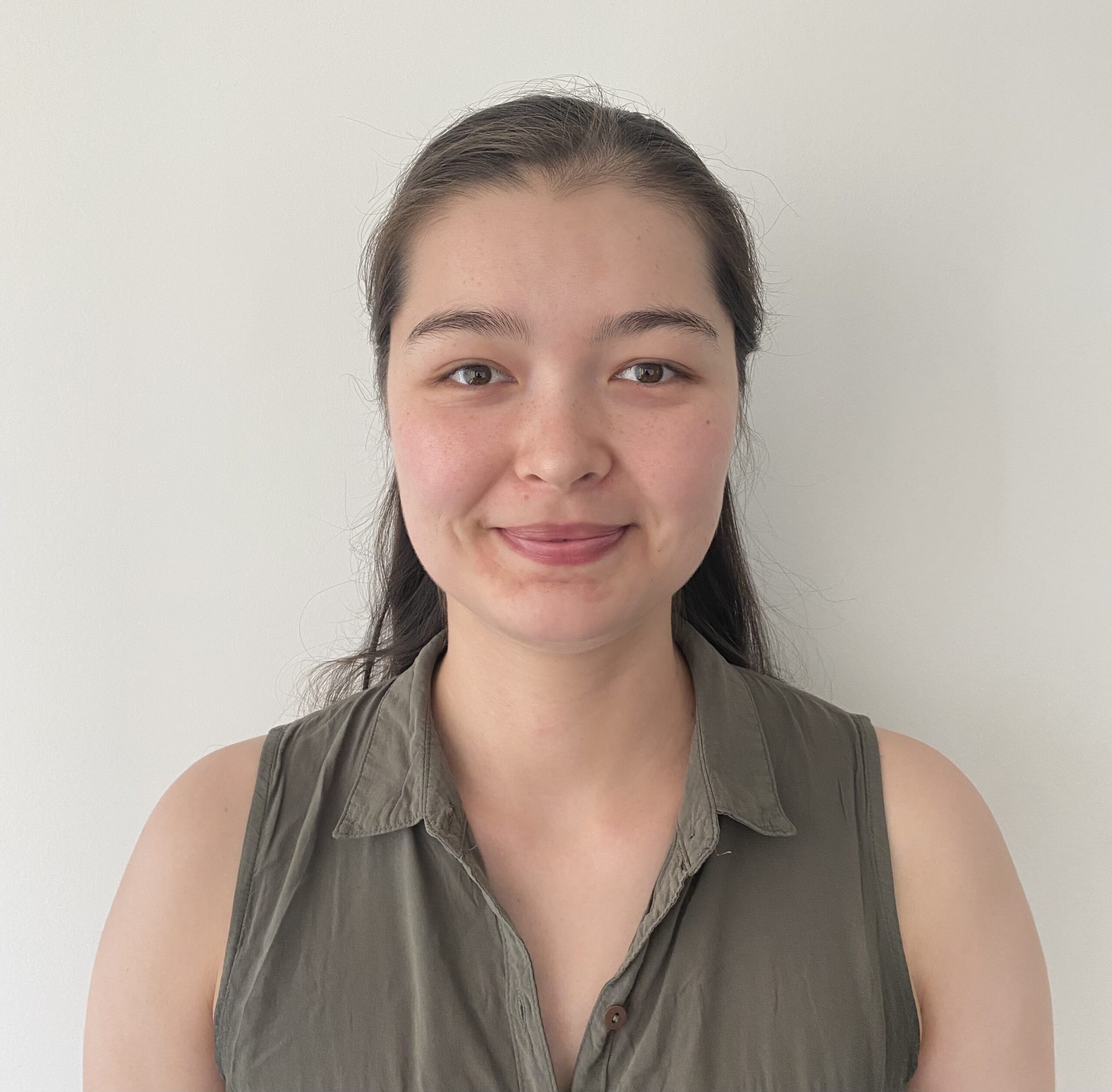
Second Place: Fatemeh Aminazadeh – The Impact of Mucus Plugs on Small Airways Remodeling in COPD patients
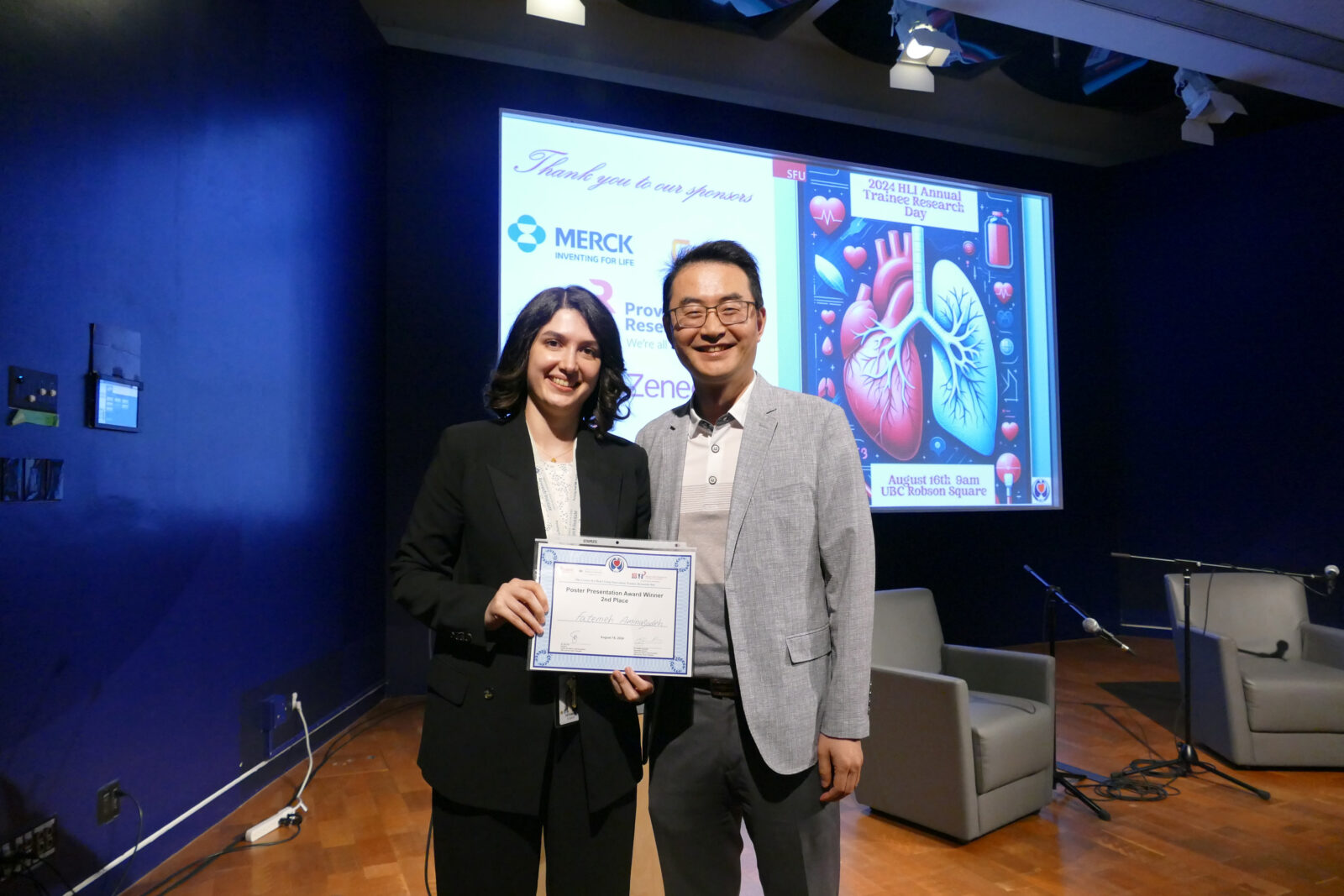
Second Place: Sean He & Edward Li – The Effects of Extracorporeal Radiofrequency Application on Lung Emphysema in a Unilateral Pig Model of COPD
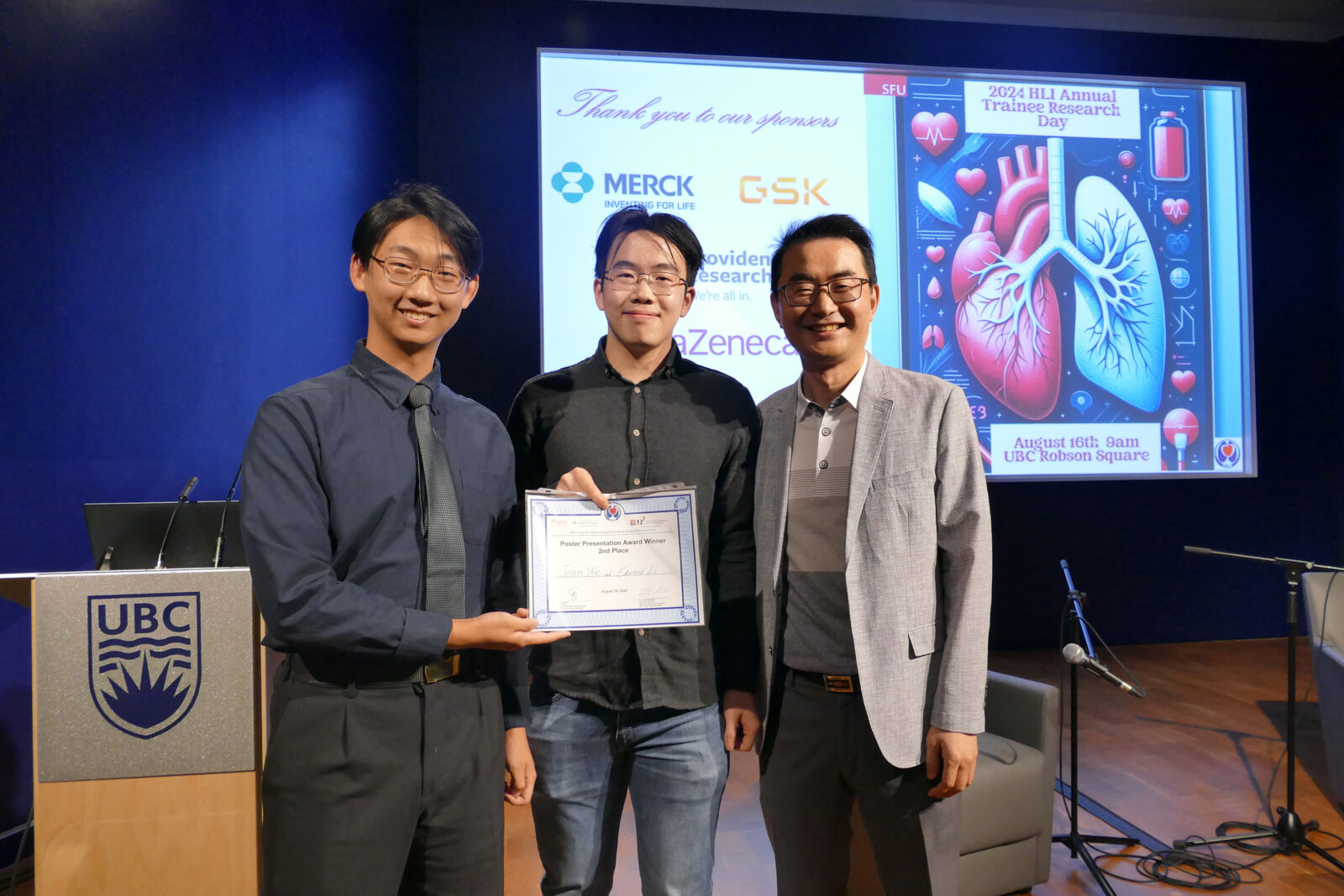
Third Place: Kauna Usman – Interleukin-1α Downregulates Transforming Growth Factor-β-induced Global Gene Transcriptome Changes in Healthy Lung Fibroblasts; Implication in Lung Injury and Repair
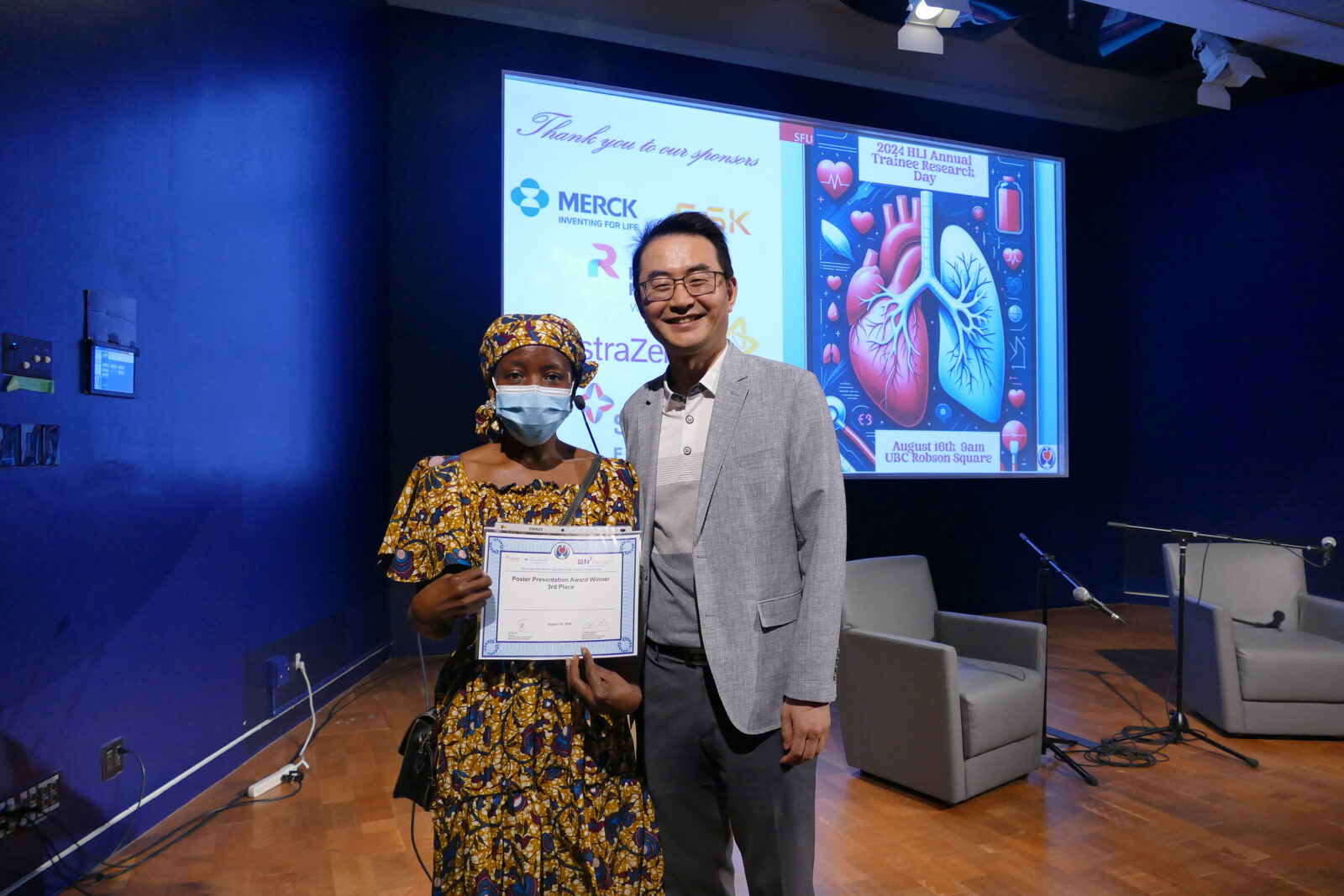
Third Place: Bob Lin – Investigating the Phosphatidylinositol 4-phosphate Pathway of Coxsackievirus B3-Induced Non-Canonical Autophagy
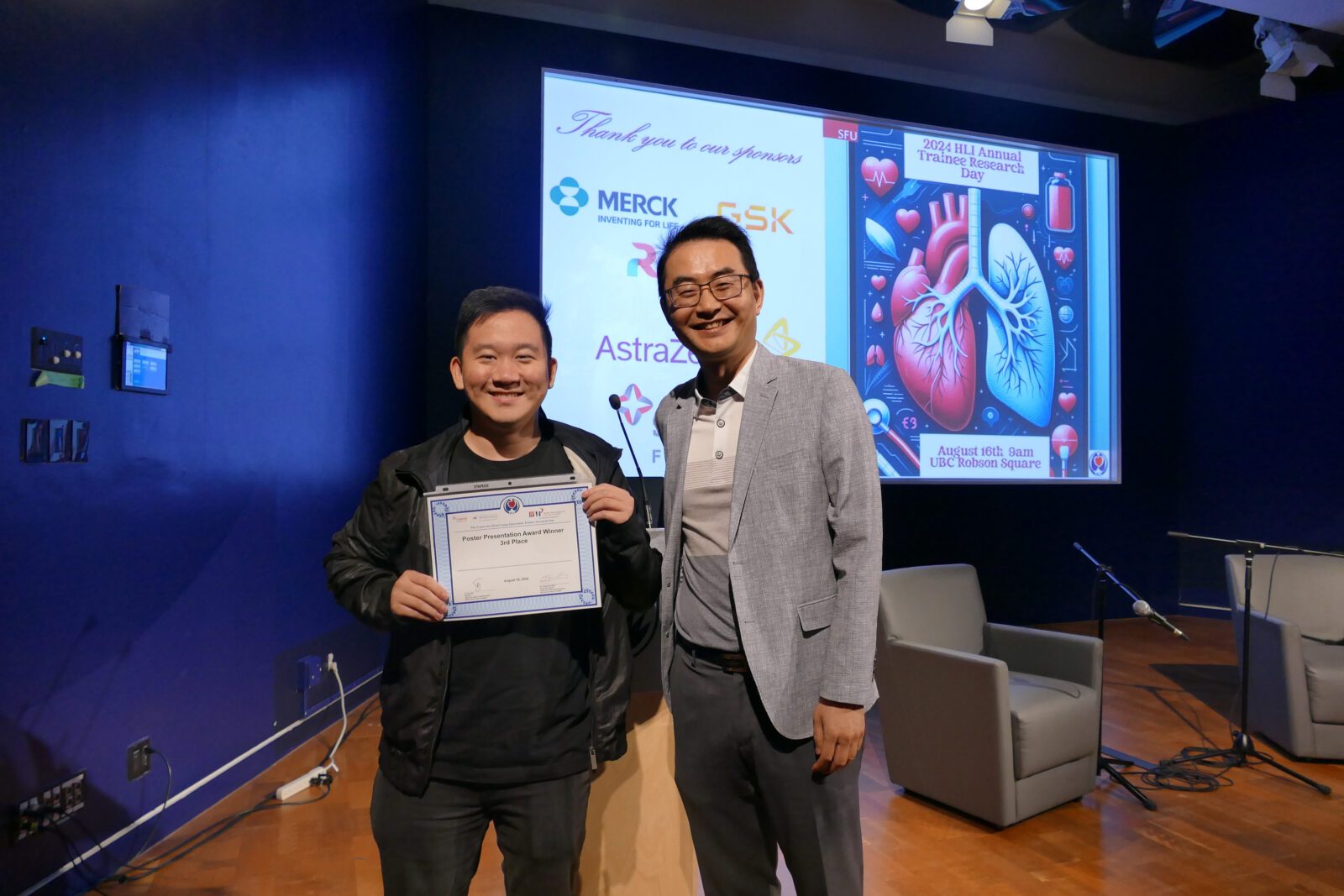
Third Place: Estefanía Espín – Long-COVID in Paramedics: An Exploratory Gene Expression Analysis
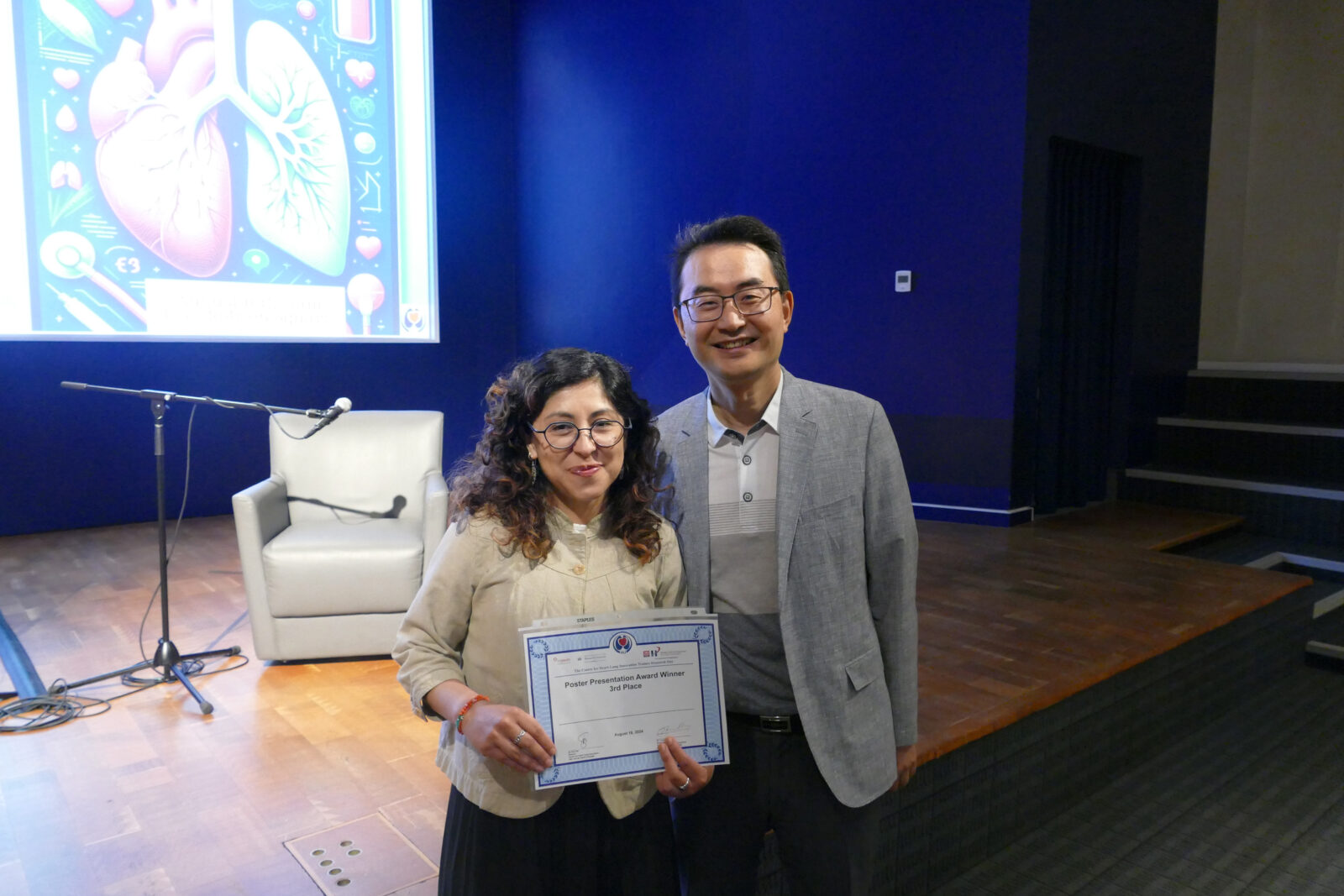
Rookie of the Year: Wendy Liang – The Effect of Senescence and Senolytics on Airway Epithelial Function
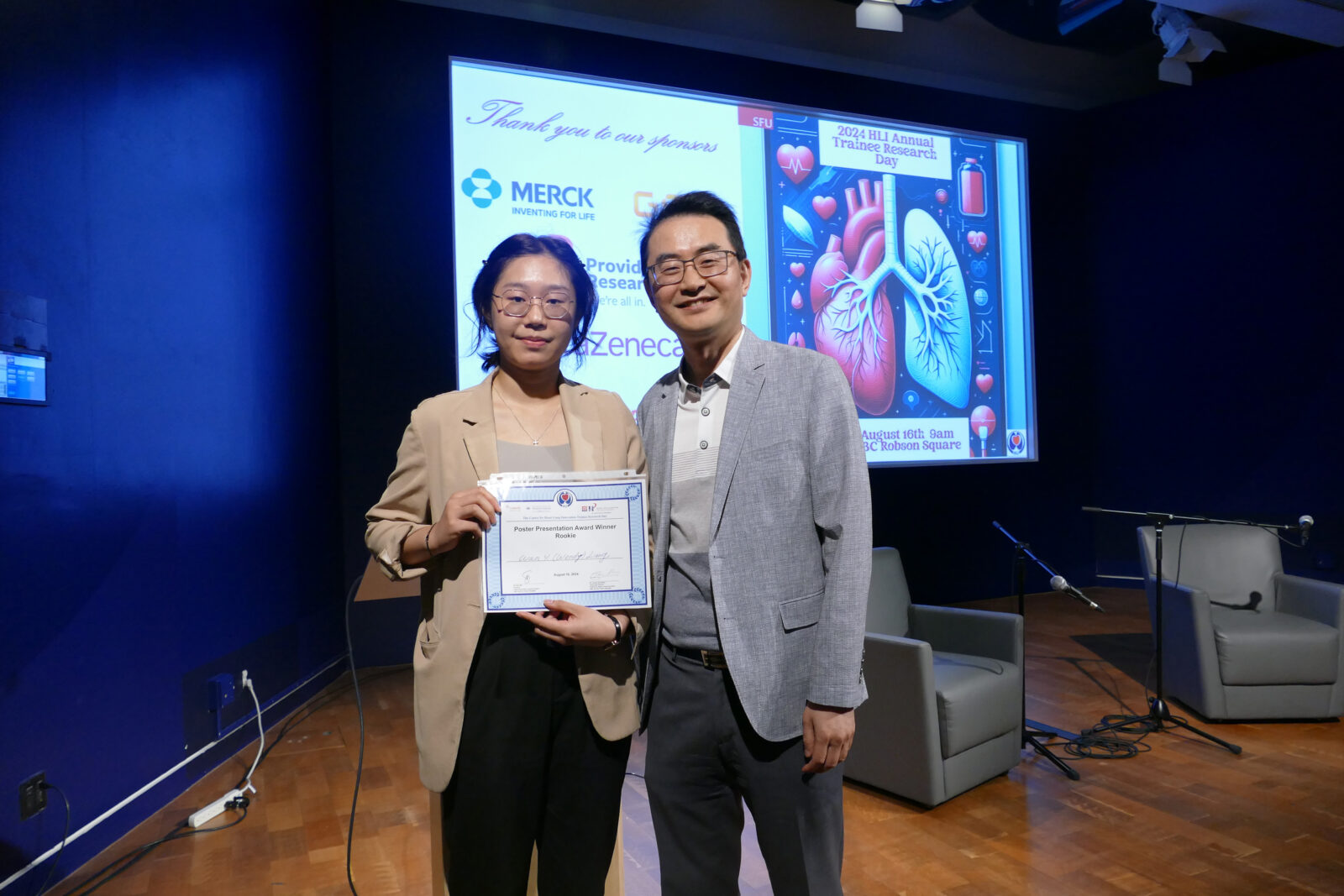
Oral Presentations:
First Place: Cyril Helbling – Navigating Challenges in the Development of Seed Amplification Assay for Synucleinopathies
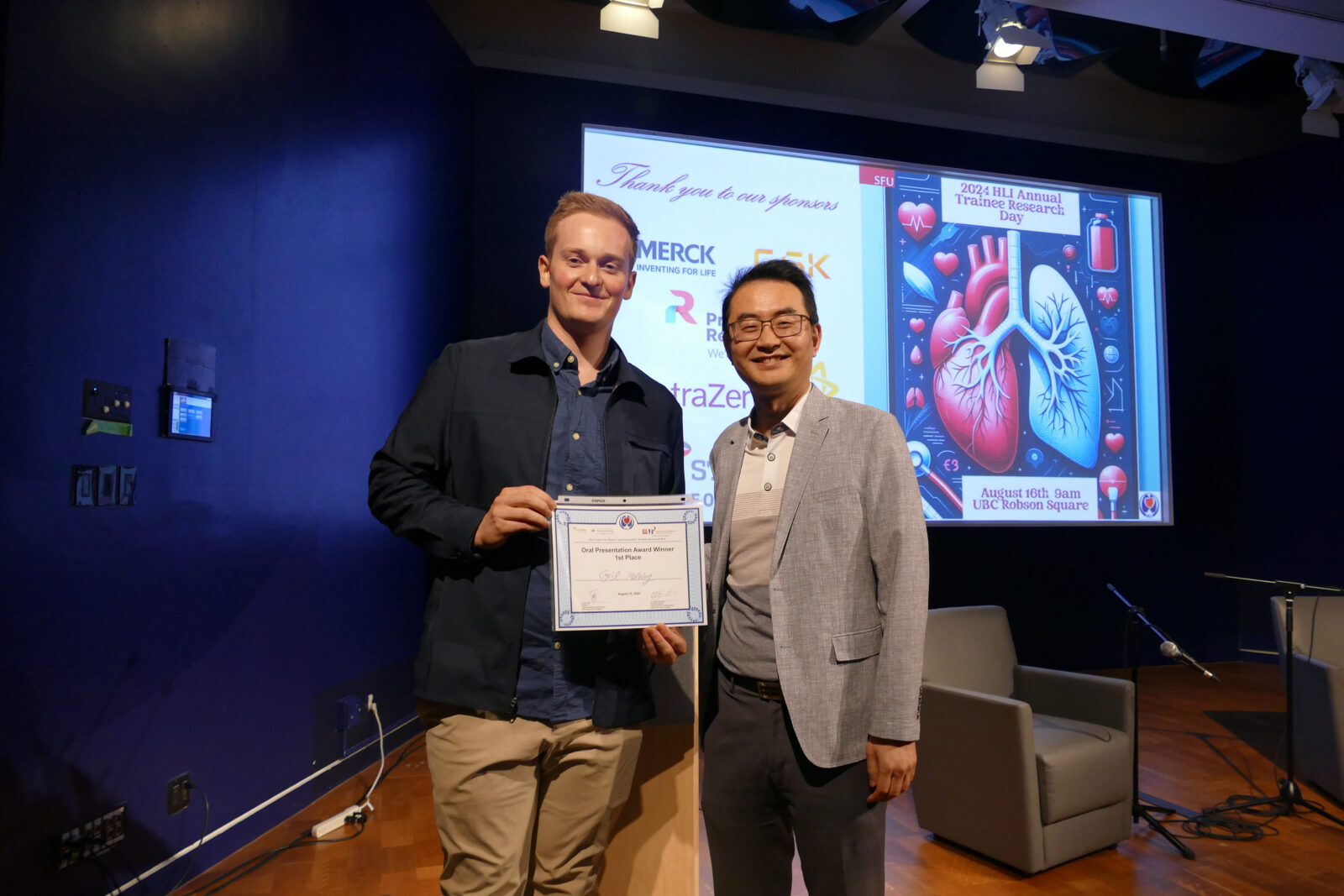
Second Place: Hacina Gill – Frame Fibrosis of Transcatheter Heart Valves: A Potential Substrate for Impaired Neo-Sinus Flow and Coronary Access
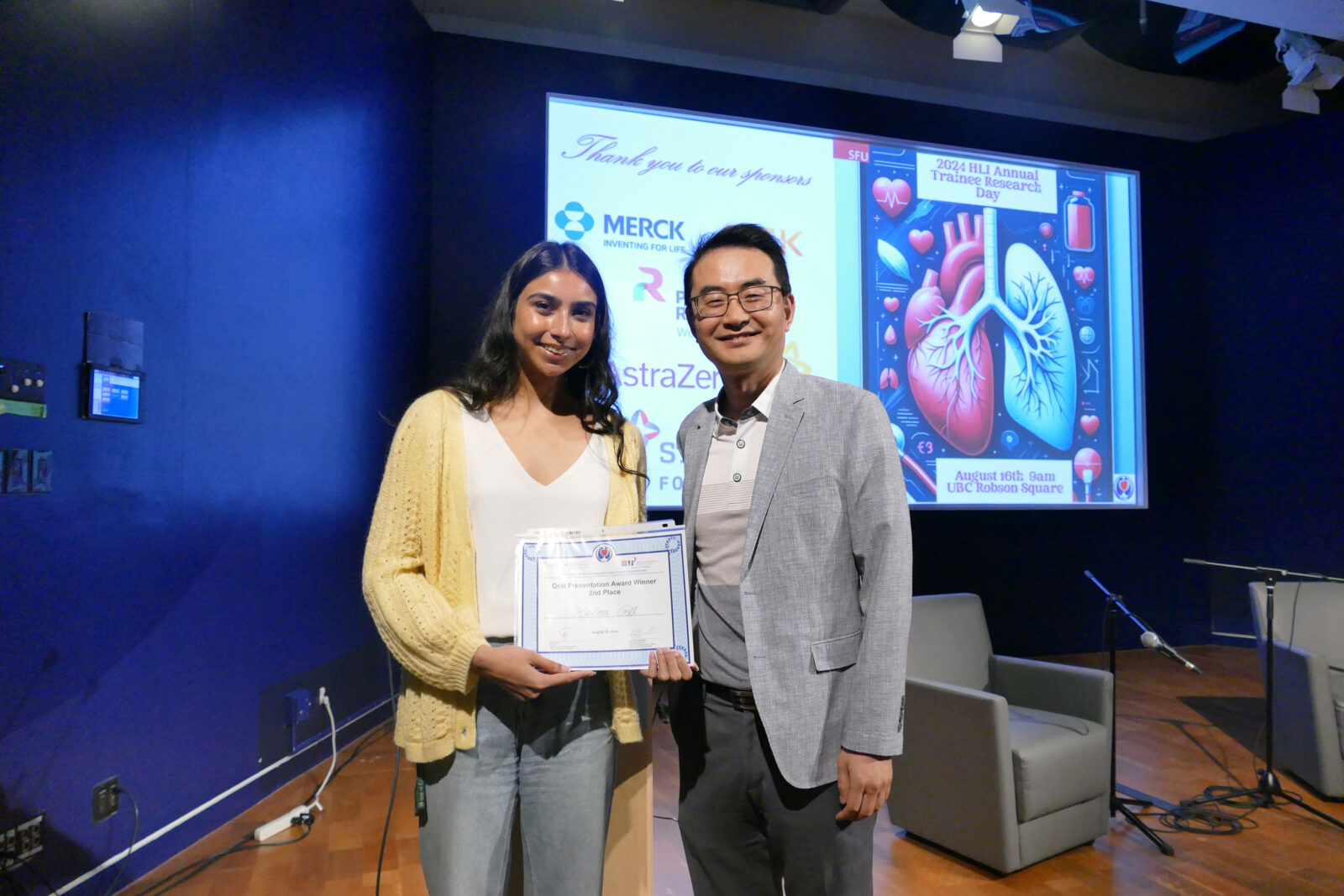
Third Place: Rohan Arvind – Incidence of Neuropsychiatric Outcomes Following Sepsis: A Propensity Score Matched Retrospective Cohort Study in UK Biobank Patients
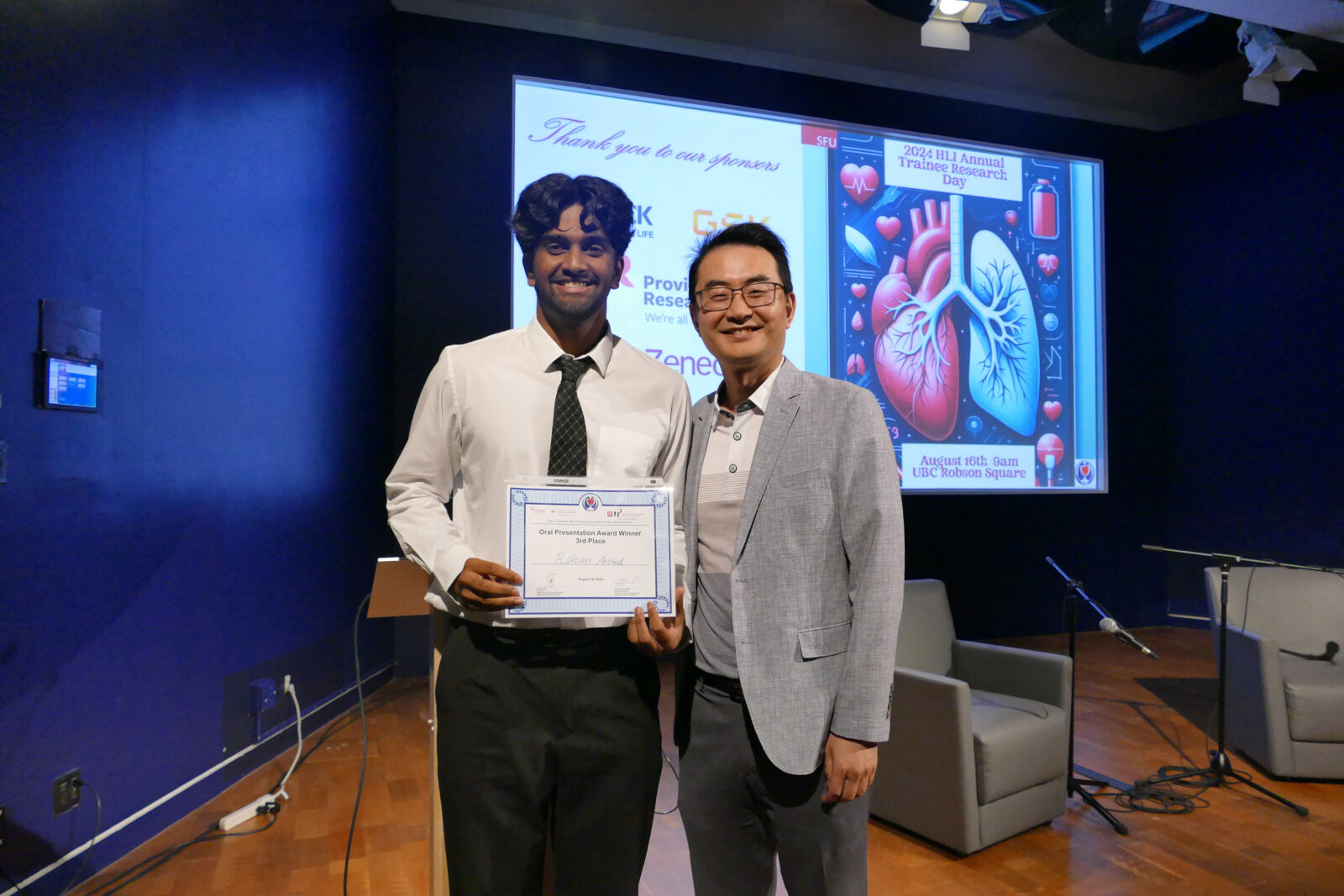
Rookie of the Year: Carly Lin – Understanding the Role of Coxsackievirus B3 Membrane-Associated Viral Proteins in Mitochondrial Dysfunction
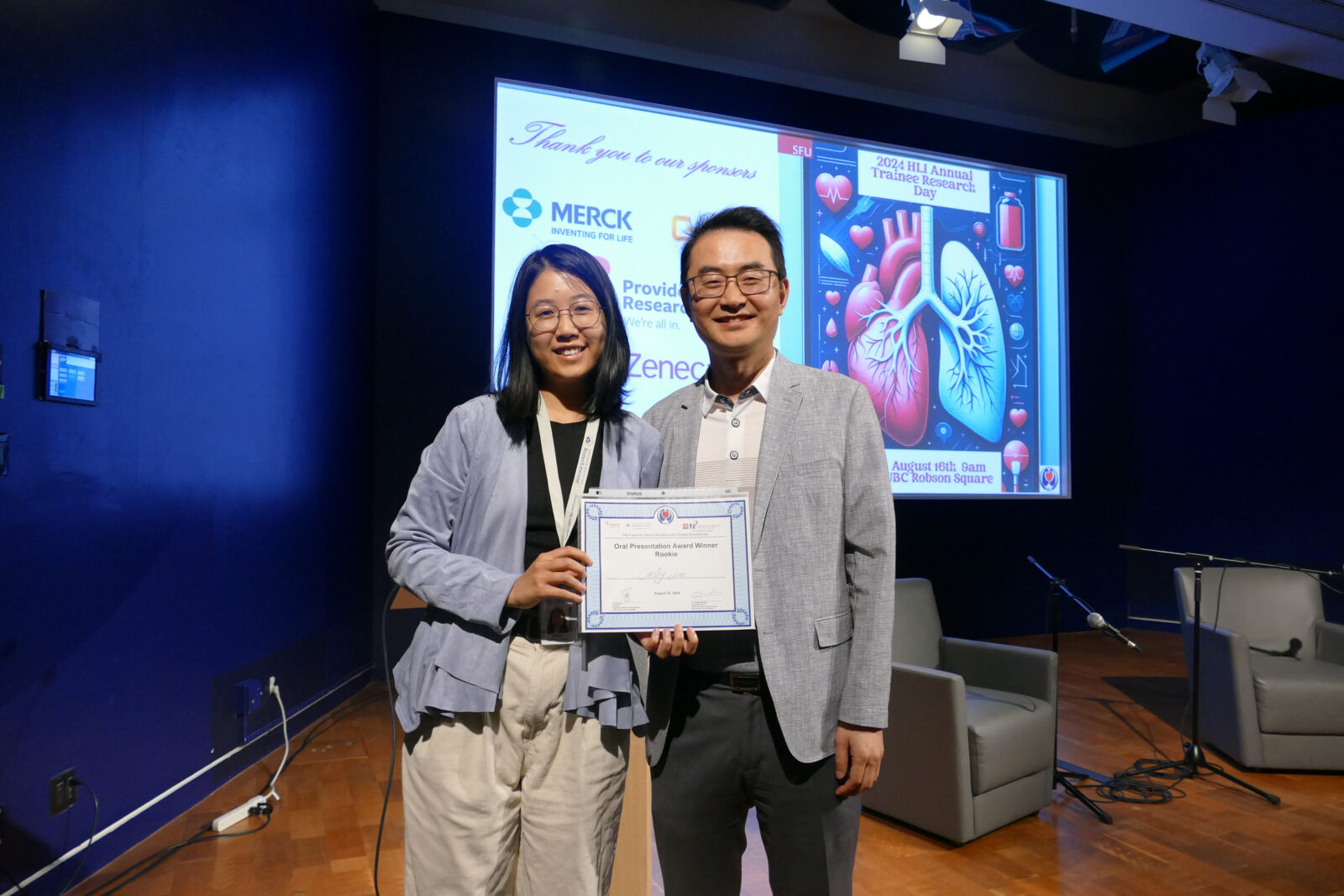
Knowledge Translation Video Competition:
People’s Choice Award: Arla Xiao – IPF Vandalizes Bus Station Lungs
